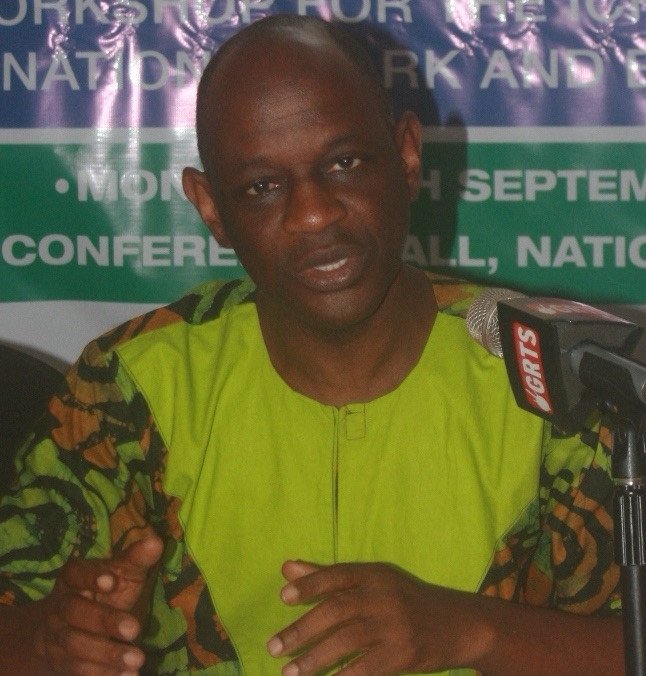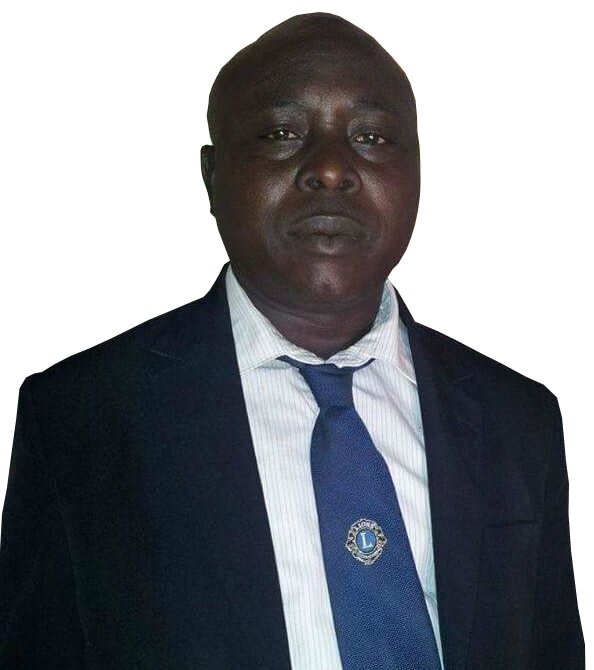By Yunus S. Saliu
The National Centre for Arts and Culture (NCAC), an institution under the Ministry of Tourism, Arts, and Culture (MOTAC), has long been at the forefront of promoting and preserving Gambian culture, heritage, and arts. As 2024 comes to an end, a review of its achievements revealed both significant milestones and ongoing challenges, particularly in terms of funding and logistical support. While the year saw the successful execution of cultural events, artistic initiatives, and projects, the NCAC also faced resource constraints that hindered its full potential.
Looking ahead to 2025, the NCAC is optimistic about overcoming these challenges through stronger partnerships, sustainable funding, and greater engagement with both local and international stakeholders.
However, Hassoum Ceesay, the Director General of NCAC, reflects on 2024 as a year of significant achievements for the centre, particularly in fulfilling its mandate to protect, promote, and interpret Gambian culture and heritage.
Key Achievements in 2024
The year began with the NCAC’s collaboration with the National Organizing Committee (NOC) and the community of McCarthy Island (Janjanbureh) to organize the historic Janjanbureh Bicentenary Commemoration, marking 200 years since the arrival of liberated African slaves on the island. The event was graced by the President of The Gambia, the Vice President, the Prime Minister of Senegal, and other VIPs from around the world.
Another highlight was the successful celebration of the annual Janjanbureh Kankurang and Masquerade Festival, organized by the NCAC in collaboration with the Local Organizing Committee (LOC) and supported by various partners. The festival was another significant cultural achievement for the centre.
The NCAC also completed a major project with UNESCO support: an inventory of built heritage sites in Banjul. This project, which involved the active participation of Banjul’s youth, resulted in a comprehensive database of the city’s monuments, including churches, mosques, and historic buildings.

Additionally, the Banjul New Year Cultural Festival took a new direction in 2024, thanks to the personal involvement of the Minister of Tourism, Arts, and Culture, HonourableAbdoulie Jobe, who raised funds to support local cultural groups and established a task force committee to ensure a successful event. And as usual, the Ministry through the NCAC dispensed funds to the other community festival organizers across the country.
The NCAC also expanded its international outreach, supporting Gambian artists to perform at global events. For the first time, a Gambian cultural delegation participated in the 37th Surajkund International Cultural Craft Mela Fair in India, and Gambian artists were also supported to perform in London, Scandinavia, and other African countries.
In the field of archaeology, the NCAC successfully conducted an expedition at the stone circle sites in Nianimarou, in collaboration with the University of Geneva, Switzerland, and archeologists from Senegal and France. The discoveries made at these sites are shedding new light on the ancient history of The Gambia, and the project will continue into 2025.
The NCAC also supported an expedition to Kansala, the capital of the ancient Kabu Empire, with a successful presentation of its findings at the end of the year.
Furthermore, the centre made significant progress in creating the proposed National Language Policy, in partnership with the Academy of African Languages of the African Union (ACALAN).
International Cooperation
In 2024, the NCAC also strengthened international ties, notably with Senegal. In December, the Senegal-Gambia Cultural Award Night held in The Gambia celebrated the cultural cooperation between the two nations and was attended by the Vice President, the Prime Minister of Senegal, and the Gambian Minister of Tourism, Arts, and Culture.
The NCAC is also working towards reviving and expanding the International ROOTS Homecoming Festival. The centreplans to mark the 50th anniversary of the publication of the ROOTS book and its film adaptation in 2026 and 2027, providing an opportunity to reignite this important cultural event.
Training and Capacity Building
The NCAC staff benefitted from various training opportunities in 2024, both locally and internationally. These included heritage management and conservation training in China, archaeological training in Turkey and Cape Verde, and the completion of the Intangible Cultural Heritage (ICH) training, which has led to the listing of over 30 ICH elements in The Gambia.
Director General Hassoum Ceesay emphasized that the centrewill continue to focus on capacity-building in 2025 to further strengthen its staff.
The Growth of Artistic Freedom
One of the most notable developments in the arts and culture sector in The Gambia is the growth of artistic freedom. The country has seen the emergence of new festivals—be they community, urban, or cultural festivals—almost every week. This is a significant and positive trend, as these festivals help to unite people and showcase the rich cultural diversity of The Gambia.
Challenges and Expectations for 2025
Despite these accomplishments, the NCAC faces ongoing challenges, particularly with regard to funding. Director General Ceesay highlighted that the center’s expectations for 2025 include reviving and expanding the ROOTS Homecoming Festival, protecting identified cultural sites and ICH elements from degradation, and completing several important heritage projects.
Among the key projects awaiting completion are the Mausoleum dedicated to the late Alhaji Sir Dawda Kairaba Jawara, the former President of The Gambia, and the restoration of James Island, which is currently under the Tourism Resilience of The Gambia Project for rehabilitation. The NCAC is also focused on completing the Mongo Park Memorial Obelisk, which has faced delays due to insufficient funding.
Looking forward, the NCAC is determined to continue its mission of safeguarding and promoting the cultural heritage of The Gambia, with a renewed focus on securing the necessary resources to overcome these challenges in the year ahead.




